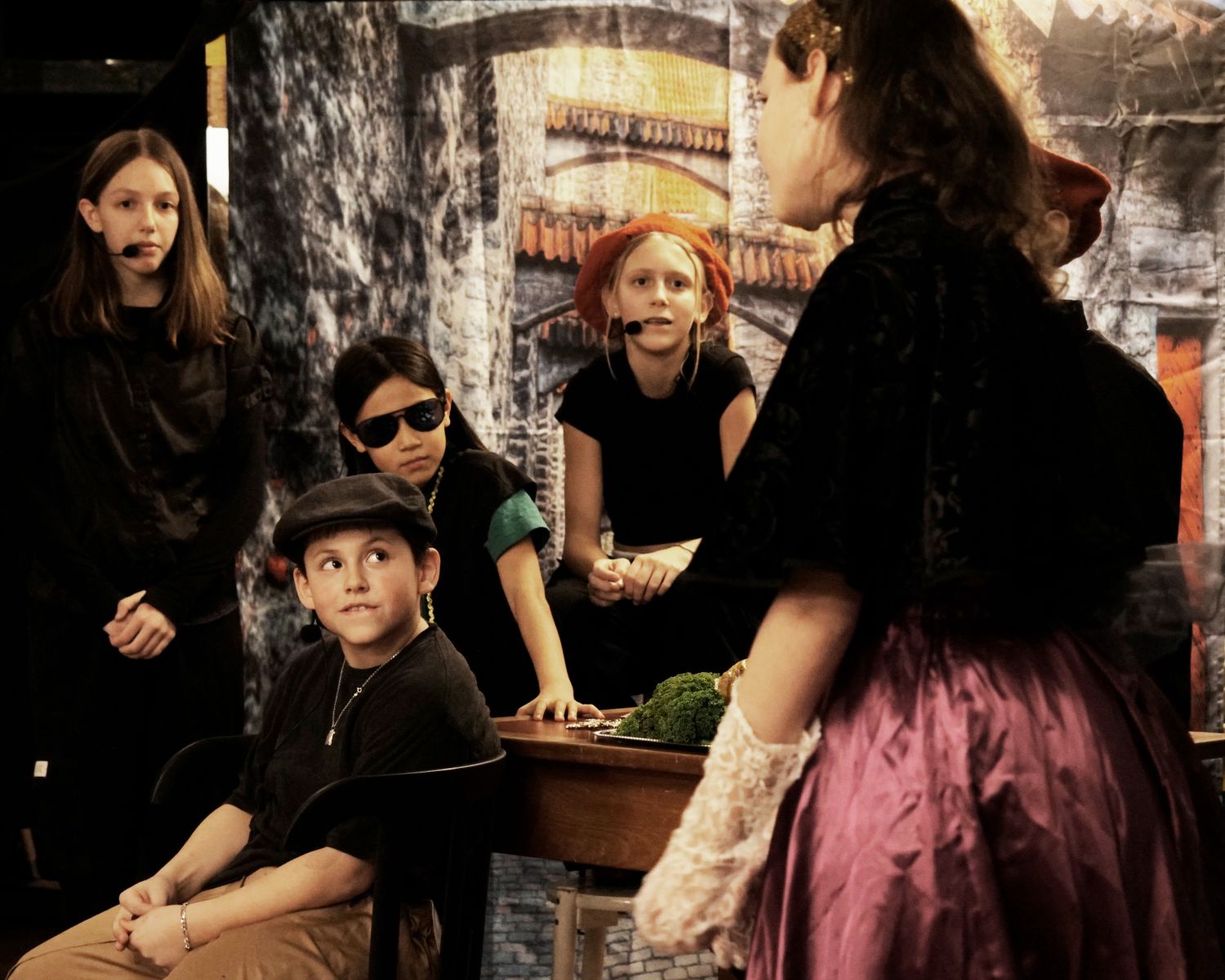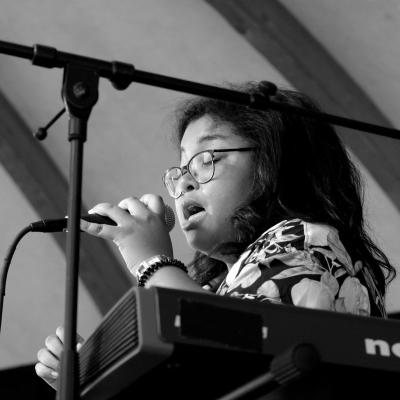At a Glance
Offer your child a comprehensive artistic experience that combines theater, dance, and singing in a single class! Our musical theater workshops for kids and teens in Lausanne and Geneva help build self-confidence, creativity, and versatility in a warm, welcoming atmosphere. Led by passionate and caring instructors, students progress at their own pace throughout the year and take the stage at the end of the year for a memorable show. Limited spots available – enroll now (free trial class included).
Program
A rich and motivating year-long program awaits your child. From September to June, students first explore each discipline separately (acting, dance, singing) to acquire solid fundamentals. Then, little by little, they learn to combine these skills: acting in rhythm to music, singing while dancing, and so on. Over the weekly sessions, everyone gains confidence and prepares performance numbers for the final showcase.
At the end of the year, all their work leads to a stage performance. During our annual Apolline Fest (our school’s arts festival), each student who wishes to can step onto the stage in front of family and friends to present the creation they’ve worked on throughout the year. (Typically, the year-end piece is decided and rehearsals begin in January.) This showcase highlights each young artist’s strengths in a supportive, fun environment with no competitive pressure. There’s no exam stress or contest at Apolline – only the pleasure of improving and sharing their passion!
Don’t wait to reserve your spot: our musical theater classes in Lausanne and Geneva are very popular and enrollment is for the full year. It is possible to join mid-year (tuition adjusted pro-rata for the remaining sessions) if there’s space, but it’s best to start from the beginning to enjoy the entire program. The first trial class is free for a no-obligation discovery. Sign up now and take advantage of our 10% sibling discount when a second family member joins the adventure. Flexible and accessible: payments can be made in 12 monthly installments with no extra fees (or in one lump sum with a discount).
(Weekly programs run 1 to 1.5 hours depending on age.

Subscribe and Schedule : 6 to 10 y.o. Lausanne - 8 to 13 y.o. Lausanne - 11 to 16 y.o. Lausanne
Techniques Covered
Students develop a broad range of artistic techniques and personal skills:
- Theatrical acting: Work on acting skills, emotional expression, diction, and improvisation. Students learn to portray different characters and perform naturally and confidently in front of an audience.
- Singing: Introduction to vocal technique (breathing, voice placement, pitch) and learning a variety of songs. Students practice singing solo and in groups, harmonizing their voices and delivering songs expressively — both standing still and while in motion.
- Dance: Learning stage movement and choreography. Each student develops their sense of rhythm, coordination, and stage presence through age-appropriate choreography.
- Multi-discipline synergy: Our musical theater classes train students to combine singing, dancing, and acting simultaneously. They discover how to transition from a spoken line to a sung verse while executing a dance routine — a true exercise in versatility that strengthens concentration and memory.
- Creativity and self-confidence: We encourage each student’s creative freedom. Everyone is invited to contribute ideas, improvise, and express themselves freely. This individualized approach allows your child to gain confidence on stage and beyond. The supportive group work also develops teamwork, listening skills, and respect for others.
Thanks to this well-rounded training, your young performers acquire a solid foundation in musical theater (singing, dancing, acting) while having fun. They also gain skills that go far beyond the stage: public speaking confidence, memorization, creativity, team spirit… and wonderful memories!
Teachers
Prices
| Course | Weekly Duration | Monthly Fee* | Annual Fee** |
|
Children (ages 6–10) |
60 minutes |
79.00 CHF |
900.00 CHF |
| Children & Teens (from 8 and above) | 90 minutes |
99.00 CHF |
1'150.00 CHF |
* Payment in 12 monthly installments from September through August (see our policies).
** Fee for one-time payment for the full year.
All fees (registration, basic materials, etc.) are included—no hidden costs. There’s no need to buy a costume or expensive equipment: we prioritize creativity and fun above all. For mid-year enrollments, the price is pro-rated based on the number of sessions remaining.


